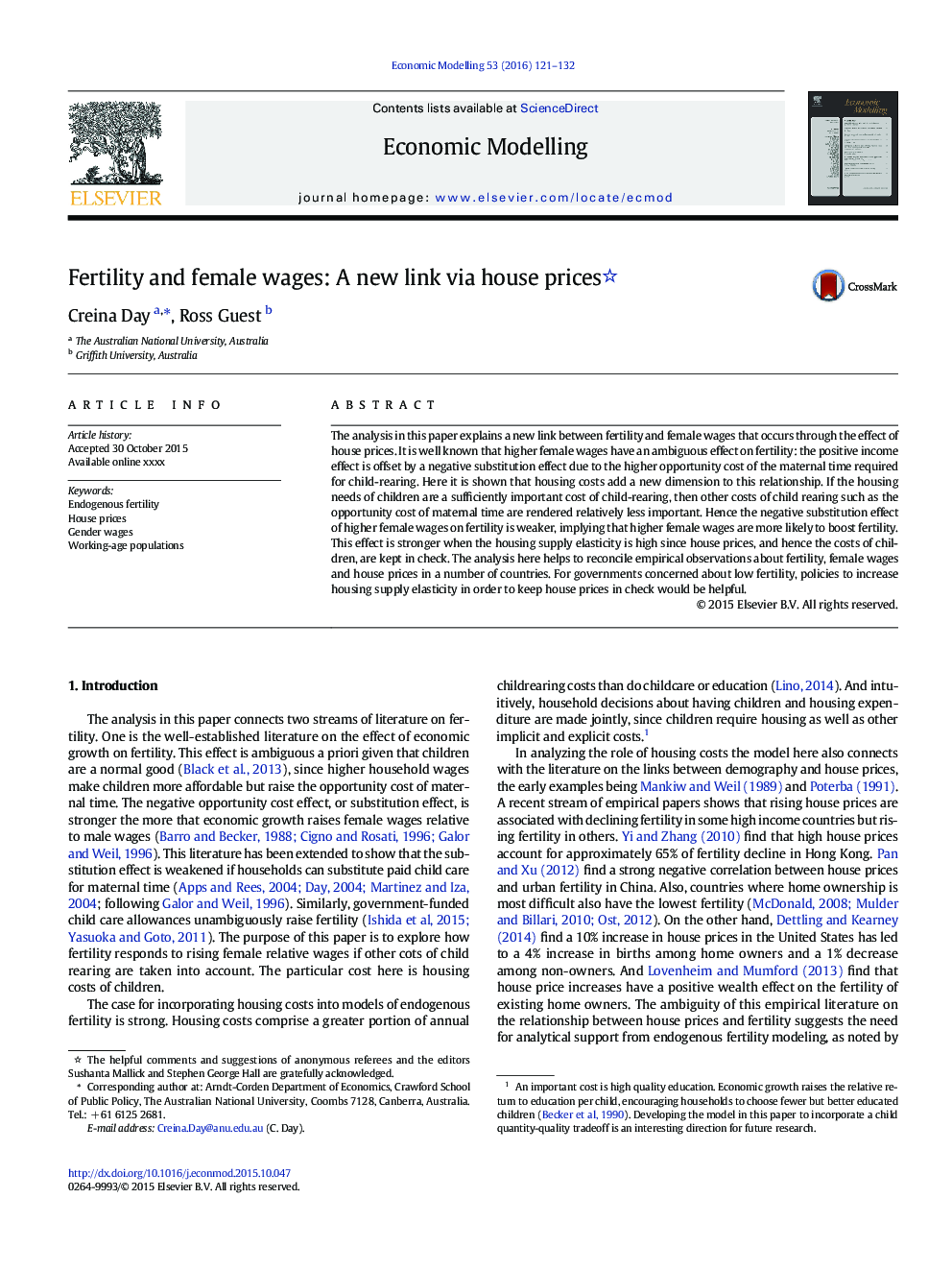| Article ID | Journal | Published Year | Pages | File Type |
|---|---|---|---|---|
| 5053596 | Economic Modelling | 2016 | 12 Pages |
Abstract
The analysis in this paper explains a new link between fertility and female wages that occurs through the effect of house prices. It is well known that higher female wages have an ambiguous effect on fertility: the positive income effect is offset by a negative substitution effect due to the higher opportunity cost of the maternal time required for child-rearing. Here it is shown that housing costs add a new dimension to this relationship. If the housing needs of children are a sufficiently important cost of child-rearing, then other costs of child rearing such as the opportunity cost of maternal time are rendered relatively less important. Hence the negative substitution effect of higher female wages on fertility is weaker, implying that higher female wages are more likely to boost fertility. This effect is stronger when the housing supply elasticity is high since house prices, and hence the costs of children, are kept in check. The analysis here helps to reconcile empirical observations about fertility, female wages and house prices in a number of countries. For governments concerned about low fertility, policies to increase housing supply elasticity in order to keep house prices in check would be helpful.
Keywords
Related Topics
Social Sciences and Humanities
Economics, Econometrics and Finance
Economics and Econometrics
Authors
Creina Day, Ross Guest,
